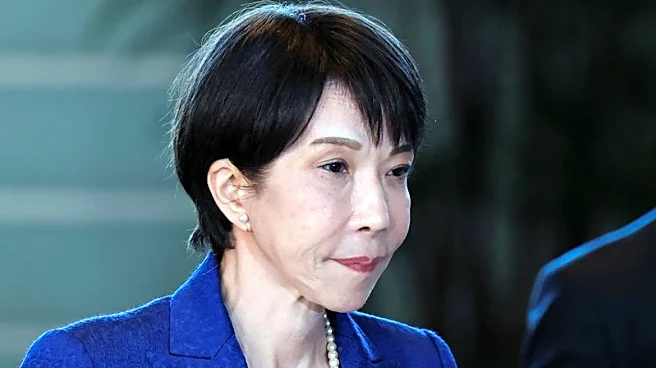What's Happening?
Organizers of the 'No Kings' rallies, set to occur across 2,500 towns and cities, are preparing for potential federal intervention as they protest President Trump's executive power reach. Concerns have
been raised about aggressive federal responses, particularly in cities like Portland, where federal forces have been accused of provocative actions against peaceful demonstrators. The protests aim to exercise First Amendment rights, with organizers emphasizing nonviolence and de-escalation training to counter narratives of extremism. The White House has dismissed these concerns, focusing on stopping perceived left-wing violence.
Why It's Important?
The 'No Kings' rallies highlight ongoing tensions between federal authorities and local communities over protest rights and government power. The potential for federal intervention raises questions about civil liberties and the balance of power between state and federal governments. These events could influence public opinion on the administration's handling of dissent and impact future policy decisions regarding protest management. The rallies also serve as a platform for expressing opposition to perceived authoritarian tactics, potentially affecting political discourse and voter sentiment.
What's Next?
Organizers are preparing for possible escalation from federal forces, with plans tailored for cities with increased federal presence. Training sessions on de-escalation and rights awareness are being conducted to ensure peaceful demonstrations. The outcome of these rallies may influence future protest strategies and government responses. Local officials and civil rights groups are closely monitoring the situation, ready to address any incidents of federal overreach. The protests could lead to further discussions on the role of federal law enforcement in managing civil unrest.
Beyond the Headlines
The protests underscore deeper issues of governmental authority and civil rights, reflecting historical struggles over protest management and executive power. The rhetoric surrounding these events may contribute to broader societal debates on freedom of expression and the limits of governmental intervention. The involvement of diverse groups, including older Americans, highlights the widespread concern over these issues, potentially fostering intergenerational dialogue on civil liberties.










